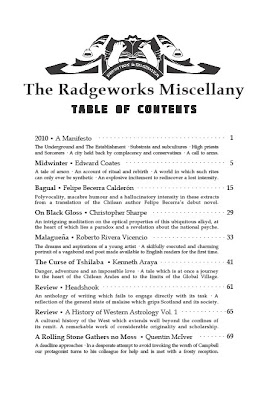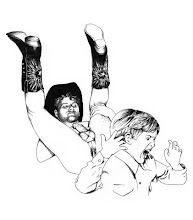
Carlos Molina est lieutenant chez les carabiniers du Chili. Il est en poste dans une réserve de Huara, dans le nord-ouest du pays. Sa femme, Rocio, est une ancienne étudiante en médecine de l’université de Playancha. Carlos tue le temps en écrivant son ennui dans le livre de garde. Les hallucinations commencent. Rocio se lamente. Son passé la tourmente et se manifeste par des voix d’enfants qui l’habitent et la confrontent à ses blessures. Carlos et Rocio partagent un inconfort quotidien étrange, profond, désorientant. Ce sont deux êtres terriblement solitaires, anéantis par l’horreur.
 L’air raréfié du nord Chili en 1980, en pleine dictature, acquiert dans ce récit, une signification puissante. Le silence, la sécheresse, les villages fantasmatiques ainsi que leurs habitants constituent, dans leur ensemble, un véritable protagoniste du roman. C’est un territoire maudit, où sont cachés des cadavres, des corps assassinés sans identité, des âmes en peine qui essaient de se faire entendre.
L’air raréfié du nord Chili en 1980, en pleine dictature, acquiert dans ce récit, une signification puissante. Le silence, la sécheresse, les villages fantasmatiques ainsi que leurs habitants constituent, dans leur ensemble, un véritable protagoniste du roman. C’est un territoire maudit, où sont cachés des cadavres, des corps assassinés sans identité, des âmes en peine qui essaient de se faire entendre.Chiens féraux transmet une atmosphère particulière. Le roman nous invite à un jeu permanent avec le fantastique. Les personnages parlent et s’exposent au travers de délires et d’hallucinations. La folie, la peur et l’horreur s’entrecroisent du début à la fin. Car il s’agit bien là d’une terreur qui s’est installée dans la vie quotidienne des personnages.











